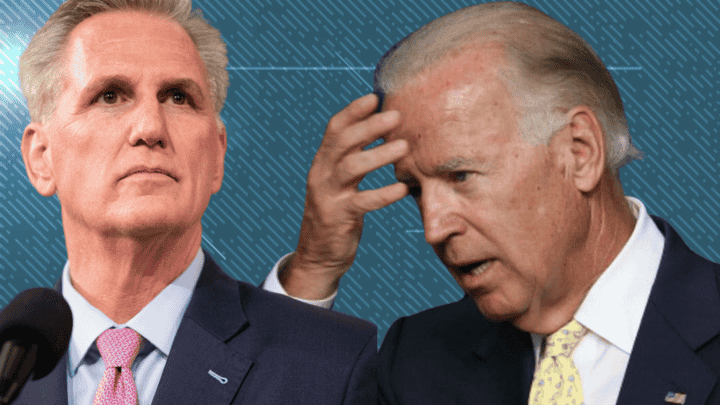Actress Zoe Kazan gained attention this week when she discussed her grandfather’s decision to name eight other people who had been Communist Party members with him after being questioned about his testimony before the House Un-American Activities Committee.
Elia Kazan became unpopular in some quarters during the McCarthy era of Hollywood due to his actions in 1952. Actors and authors who refused to “identify names” were barred and prohibited from getting jobs.
By acting in “On the Waterfront,” Kazan has established himself as a very contentious figure in Hollywood’s political climate. Without a doubt, it’s a terrific American movie, but it also has a sinister, barely discernible undercurrent.
I gave a lot of attention to how the history of our nation affected the history of my family, what it meant for my grandfather to be tested for his Americanness as an immigrant to this country, and the decision he made as a result.
Zoe Kazan responded as follows when asked about her grandfather’s involvement in the Hollywood witch hunts of the 1950s:
As Victor S. Navasky wrote in his crucial 1980 book “Naming Names”
One of the best analyses of the McCarthy witch hunt ever written, the intention of “On the Waterfront” was to “build the fullest case for informing.” The movie’s screenwriter, Budd Schulberg, had likewise given HUAC 15 names.
Before we get further into the Elia Kazan case, let’s take a look back at Zoe Kazan’s attendance at the Television Critics Association event on Wednesday. The most shocking part about her statements was that 68 years later, a reporter brought up her grandfather’s history.

Or perhaps it’s not all that shocking after all. When the Motion Picture Academy decided to present Elia Kazan with an honorary Academy Award in 1999, protests broke out. Many spectators did not stand up and applaud when the 89-year-old director approached the platform to accept his honor. Kazan went dead in 2003 without any heirs.
Meredith Blake claims that
While Zoe Kazan was speaking on a panel to promote her most recent endeavor, a television adaptation of Philip Roth’s “The Plot Against America,” she was questioned about her grandfather.
First, the reporter apologized for bringing up “difficult times for you.” You’re not bringing up difficult periods for me, Kazan responded. “You’re bringing our nation to a stop,” the speaker said.
She continued, “I’ve never wanted to weigh in on my family’s political history, partially because it includes other family members who have valued their privacy above a public existence, so I’m not going to go into it.”
But I will admit that I gave a lot of attention to how our nation’s history affected the history of my family, what it meant for my grandpa, an immigrant to this country, to have his Americanness challenged, and the decision he took as a result.
Related: Peloton Ad Controversy: What Went Wrong with Peloton and More Info!
In “The Plot Against America”
In a book based on Roth’s alternate history in which right-wing Nazi sympathizer Charles Lindbergh is elected president, Roth says, “Those were the things that were on my mind as I worked on this.”
On a variety of levels, including personally, politically, and creatively, working on this project was an eye-opening experience for me. And I gave a lot of thought to my own choices and my own life goals.
The witch hunts throughout the 1950s were a terrible period in American politics and culture. Since then, the subject has been a source of contention for writers and artists. I Married a Communist by Philip Roth, published in 1998, serves as one illustration.
“Trumbo,” a documentary on screenwriter Dalton Trumbo
Who refused to reveal names and was blacklisted for more than a decade before winning two Oscars using a pseudonym, investigated Trumbo’s life and times.
My favorite Woody Allen movie is still 1976’s “The Front,” in which the actor portrayed a nebbishy nobody who was hired to pose as a television screenwriter in order to aid a gang of blacklisted screenwriters in getting their screenplays produced. In a funny scene, Allen asks for two Hemingways and a Faulkner at the bookstore counter to please his TV producer’s love interest.

In the film’s end credits, Martin Ritt, Walter Bernstein, and the performers Joshua Shelley (1952), Zero Mostel (1950), Herschel Bernardi (1953), Lloyd Gough (1952), and (1952). But I’m getting ahead of myself.
The House Un-American Activities Committee wanted to regularly demean their targets in front of the public rather than eradicating Communist Party influence in Hollywood.
Participants in this rite of passage admitted that they had been coerced by communists into changing their works to match their ideological perspective, preferring to do so under cover of secrecy so as not to alert the uninformed American public.
The people being questioned were asked for the names of individuals with whom they had allegedly joined communist front groups or with whom they had communist sympathizers in their thoughts. These names were not kept a secret because anti-communist organizations started naming alleged communists in 1950.
When they were confronted by the committee, several turned themselves in. It was done for a number of reasons, including the belief that they were outing subversives, a desire to defend their professions from potential blacklisting, and a desire to exact revenge.
Others buried themselves in alcohol or melancholy, while others tried for years to make amends with the people they had wronged or sought counseling to accept their own actions. Among others who gave information for the investigation were actors Lee J. Cobb and Sterling Hayden.
Trumbo and other screenwriters who had contributed to some of the most well-liked and successful movies of their era were among those who resisted the Hollywood establishment.
There is a lengthy and scary list of those who have been banned. In a contentious brochure titled “Red Channels,” 150 people were identified as “red sympathizers,” including actors Jose Ferrer, John Garfield, Judy Holliday, and Edward G. Robinson.
Related: Patricia Heaton Blasts Disney for Removing the Element that Makes Us Want to See It
Other people were later added to the blacklist
In addition to Eddie Albert, Orson Bean, Ossie Davis, and Ruby Dee. Although it wasn’t always necessary to reveal information about other people, Navasky refers to this as “self-abnegation” prior to HUAC.
Elia Kazan testified twice before the committee in 1952. His name was already being called by Broadway and Hollywood. According to Navasky, “he possessed de facto first refusal rights on any Broadway-bound production from 1946 onwards.” He directed “A Streetcar Named Desire,” a stage adaption of Arthur Miller’s “Death of a Salesman,” in 1951 to round off his career as a director.
It was anticipated that Kazan’s appearance before the committee would help remove his name off the blacklist, but it didn’t. His work had a strong social justice component in many of his endeavors. He could have refused the committee’s demands without worrying about his career because he was a strong and well-known person.
Isn’t that what occurs? In his first public appearance in January, he admitted that he had been a Communist Party member between 1934 and 1936, but he did not name any particular party members by name. Upon his return in April, he named eight additional party members and issued a four-square criticism of the party’s “police-state” attempts to control his work. Morris Carnovsky, Clifford Odets, and his wife Phoebe Brand were among them. The Times published the whole list of the eight people the following day.
Kazan has lived his life as an unrepentant informant. Two days after testifying, he placed a full-page advertisement in the New York Times explaining his decision and urged others to follow suit.
He wrote that he had testified to defend his adoptive nation (he was born in Constantinople to Greek parents) from “a dangerous and alien plot” for the sake of the United States’ “free, open, healthy way of life that gives us self-respect.”
“I don’t think the American people can address this problem wisely unless they know the truth about communism,” she said.
Related: Downgrade Controversy: What Was the Motive Behind Spurgeon’s Initiation? and More Info
Kazan’s final effort to defend his enlightenment was “On the Waterfront”
Or, to put it another way, Navasky sees the movie as “a brave effort to confound the public perspective of the matter.”
Kazan and Schulberg unequivocally place information before entertainment. Terry Malloy‘s “snitch” is Johnny Friendly, the odious and dishonest union boss who was the target of the blacklist in real life, as performed by Lee J. Cobb and Marlon Brando. After the boss kills his brother Charlie (Rod Steiger), Terry decides to pursue Friendly.
According to Navasky, there is no room for ambiguity in Kazan-“Waterfront”. Schulberg The author claims that by killing Charlie, “the viewer is denied of any opportunity to judge honestly the ambiguous and dangerous complexity of the informer issue.” Even though squealing is a personal preference, it is necessary for “Waterfront.”

The contradictory intentions and deeds of the 1950s Hollywood crises were exposed at the 1999 Oscars. The interview between a TV reporter and Zoe Kazan serves as proof that the problem has never really been resolved. The pressure on moral judgment in the entertainment industry and many other industries is definitely a good thing.
Naming names didn’t cost Kazan any money or time. Martin Scorsese, an actor, and director dubbed him “one of the most important characters in the history of filmmaking” for more than 20 years after his testimony, and he also penned two best-sellers.
The track record is less certain when it comes to one’s own life. In 1955, Kazan received a copy of Arthur Miller’s play “A View from the Bridge,” which dealt with the topic of informing critically, according to a Navasky-attributed unsubstantiated account.
“I would be happy to direct it,” Kazan wrote to Miller
You aren’t getting it, Miller remarked. I didn’t send it because I wanted you to direct it; that was not my objective. This was my method of letting you know what I believe about stool pigeons,” I wrote.
For more updates, keep reading – pelhamplus.com



